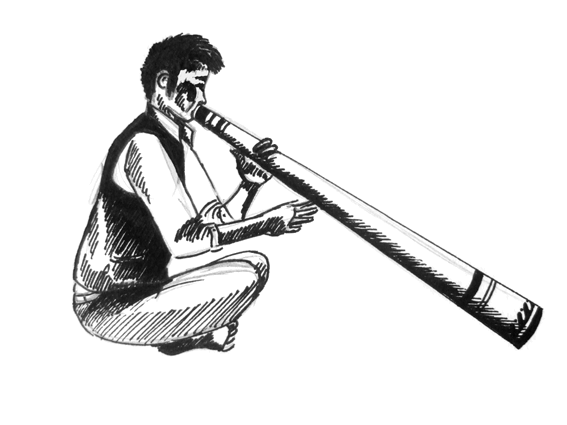
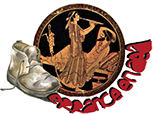

Intervention OF Jean-Michel Djian, University OF Paris VIII
Public authorities, artistic education, the example of the music celebration day.
I am going to talk to you with a political speech I often do in Paris, but trying to put the question of today about artistic education and street performing arts, toward a story, a personal history, because I have been working in the cultural area for 30 years. I am 57 and I started my life in this area when I was 27. If I talk about it in a very free way, it is because I just wrote a book about the history of the music celebration day. This story fits with the question you are raising now, linked with the state and culture. The history of Street performing Arts doesn't concern only theatre and is appearing at an international level. The music day celebration is 30 years old. In 1982, I started to work in the ministry of culture, and I was a testimony of a meeting of preparation of this day, during which 3 well known characters of the cultural and political life were present.
The Left party just arrived to govern France and a Minister, Jacques Lang came in charge of the cultural ministry, in De Vallois Street. 2 other persons, Christian du Pavillon, an illuminated architect, and journalist from the Nouvel Observateur, who was the director of the music department of the ministry (which wasn't a mission that was often given to a journalist), Maurice Fleuret. He was a great musical critics and he initiated the relationships between music and new audience in the region Nord Pas De Calais.
J.Lang called him on the proposal of the first minister. It is important to recall this story. I participated as a trainee in this time and I discovered what a good idea is and how it can be appropriated and sometimes killed politically and administratively. I explain : Christian du Pavillon and Maurice Fleuret notice that French people get 4 millions of music instruments in their attic. Both say that "it is curious that we don't see those 4 millions of instruments play". There is a gap between the existence of those instruments and the reality that we can't play music everywhere, every when, every how, because of security measures, for example. In 1982, a new cultural policy turned toward "outdoor programs", was introduced in a ministry cabinet. Strangely, the minister J. Lang that I met for the first day of my life, was hesitant about hosting this new idea. Mister Fleuret and De Pavillon insisted to reach their goal. This is the role of the State to push people to take their instruments and go and play outside. Obviously, the ministers who were gathered around the table, started to laugh, asking who were those left sided men who wanted to make people go out with their instruments in the street. It was totally surrealist.
except the minister who said : We don't take too much risk. We ensure that from 8.30 to 9.00 pm, people go out on June the 21st in the street. The chosen day was the summer solstice. Only finish people (because the event had taken a huge European dimension) denied the date because they already celebrated something on this day. We didn't know that, but there are many traditional events on this day, in northern countries.
All the Parisian intelligentsia, all the TV channels, the radios, didn't approve the idea to communicate on this day, saying : "it won't interest anybody, nobody will go out in the street". Until 2 days before, where M. Fleuret and J.Lang went into doubt : "we are stupid, nobody will come!". Some few radios transmitted the information.
On June the 21st, at 8.00 pm, the local prefect started to send the information, saying that many people were going out with their guitars, choirs, mostly in the south of France.
At 8.00pm, there were already, above all in Toulouse and its region, many French people who went out with their instruments, youngsters from the universities, who came out and started to sing, outside. It seems to you totally natural today, but it was completely surrealist at this time.
at 8.30 pm, the whole country was moving. This celebration lasted all night long. And it was a founder event, so the ministry got to take out the political conclusions from it.
And at this moment, curiously, J.Lang thought that this event would be a one shot day, and wouldn't be done again. But the day after, the minister was going to Spain, with the President Mitterand, and the king Juan Carlos asked him : "what happened yesterday in France?". Immediately, Spain, Belgium and other countries appropriated the event. And many initiatives have been taken since 1983. Until 1985 which was the year of the European music celebration day with his peak in the Parthenon, in Greece.
Today, 117 countries celebrate the music day. It is an event on which the states don't control nothing. It can be done with or without states. The public authorities, whatever they are, are partners or not. This event is very free and and libertarian, in the cultural French life. If I talk about it, it is because we often forget, that sometimes, States and public authorities, can be initiators of great utopias. Street performing arts participate to this movement. some people around me are better placed to assess what has represented, 30 years ago, the coming out of this event. And we have to admit that all this could happen because a left sided government came to power. In 1981, all over Europe, Jazz, Rock and Songs weren't recognized as arts in the culture ministry. Even the idea of arts as those kinds of musics, or comics weren't recognized and didn't get any legitimacy. We couldn't help those artists.
The fact that we could do it, modestly, and sometimes with much approximation, with errors, allowed to generate artistic practices, that you all know today, and which appeared thanks to the political area. And if today in France, we are in a particular configuration regarding the rest of Europe, we have to remind that it is because of the public authorities, the public initiative in art and creation don't exist. We can say to ourselves that we don't need politics, municipalities, local authorities... it is true. The proof is that each one try to live art today.
Actually, this is the paradox, without the public authorities, there is no cultural practice. I go further, saying that today, the tragedy is exactly that there is no more political breath to renew ideas, to allow artists to remind their place in the society,. Until we won't have redeemed the power of the ministry of education in the system of learning of art, we won't have no chance to get a ministry that works well in the following years.
Without the training of young people, children, teenagers by the school system, no chance to get a cultural ministry that can relay performance after school. If we want to get an ideal and political vision of what can be the future society. The real problem in your nowadays generation is the lack of ambition, the place, the role of art in the society. I wrote a book a few years ago, called "Citizens on Art" ("Aux arts citoyens!"), in order to modestly try to question teachers and artists on their responsibility they get in relation with that.
It is not useful to think that playing in a village will make the inhabitants happy, and that we will the world. Even with the best musicians, the best actors in the world, it won't be useful to change the society. It can only happen in a school playground, with people that agree to share their hopes, and who are relieved by those who represent us : the public authorities. Until that there will be this gap between the work that you are making and the political ideas, no chance to see things change. I hope that you get all those questions in mind. If it isn't the case, I will come back. But the question now is : How today can we turn our practices into a run up to make authorities understand that human vocation is not only survive, but also blossom.
Exchanges :
Sean Edwards, GB : Toward your experience, could you give us your regard toward the cultural public authorities, about the absence of political support for innovating cultural projects? According to you, is it a lack of dynamism, of energy, or a real will no to allow population to get access to cultural projects?
J-M Djian : Culture was frightening in the 70s. The question is not that we fear the cultural policy, but that we don't get any imagination. Not you, but the people from government. The problem is there. When you go out with an innovating project that seem original to you, it seems to be too much original to the ministry. The system is as institutionalised in the cultural field, as specialised in culture and arts, today, there are public authorities agents as specialised that it is impossible for them to go out from their speciality, from their emprisonnement, or they can't work anymore. So you get automatically, in front of you, people with a prejudice on innovation, originality, and all that is not traditional, in the cultural life. Like this, during the 20 last years, from the 80s to the 2000s, we exhausted all the systems of id and support on which we could support art and we think today that we have to reinvent and give breath to young creators. to young cultural policies, to innovations.
Because of this lack of imagination, of training of our representatives who are too much specialised, or too much careerists, who don't get anymore the sense of the general interest. the general interest is that everyone can give in the cultural field, examples of innovation.
I am going to talk about a very particular case. I am well placed in the University of Paris 8 in front of my students who are accepted in this course because of their innovating ideas only, and who can not apply them in France, so they go abroad to realise it. Last years, 75% of the students went abroad to realise their project. In France, there is too much rules, regulations, specialisation, administration, and it is very tiring to go and ask for money. They get the conclusions of it. Three years before, one of my students 24 years old, bought a bus to go to Ecuador. His project was very precise in his head and very coherent. He wanted to go with a bus and reinvent a form of itinerant cinema in Ecuador. He made the course and his job there. Our work was to help hip to find a fellow master there to help hip to realise his project. He is now working on it and realises his dream of child. He created his enterprise and broadcasts movies from South America. This is no more possible in France, with all the rules and difficulties that make things impossible. You, you survive, him, he lives with it, and employed 7 persons, in Ecuador, with difficult configurations. I could talk about 15 or 2à examples like this.
without shooting France, the over specialisation, the over-bureaucratisation of a democratic country make that there is no more innovation, and initiatives .In the artistic and cultural field, it is a period of work in which people want to work and make people be inventive.
Mathurin Gasparini, France :
I was asking to myself if the ministry didn't have a vision of art and culture that turned around residencies, and not around exchanges, exchanges of practices or other things. The problem could come more from there than from bureaucratisation, because in France there are innovative things.
J-M Djian :
For 15 years a politics of communication and of granting has been added to the previous ones, that sucks up money. Most of the representatives first ask to themselves if an action is going to bring in some electors. The ministry of culture, could it be French, Italian, Hungarian, first worry about knowing if the project fits with the presentation of the political program. There is a huge exploitation of the work of artists. Unfortunately, it is not a question of elitism, there is always a deal between politics and projects nowadays. We are not on the same equal level.
An example, Marseille 2013, all the operation of European Capital of culture, needs a huge financial and human energy. We don't know where money goes. It is amazing to see how we can invent games of accounting to justify projects that wont be done. All this is only communication.
With the same money, we could give grants to organisations that are less visible but make a fieldwork. But they are not interesting because we don't see them. So it doesn't interest anybody.
We have to be aware about it because it happens in Marseille, but also in other places.
Salah, Algeria :
We observe in Algeria, toward our political systems, that there is an official culture. When the politics becomes more democratic, we try to make this politics be employed for culture, but politics doesn't answers to an artistic sensibility in front of works of art and doesn't allow innovation. The censorships exists, even among artists themselves.
J-M Djian :
Of course, it is a major problem. Since the 17th century, we associate the power with culture. Since Colbert, in France, with the buildings of France, started to administrate the French cultural patrimony. We front a strange relationship between politics and art. At the end, France shaped up well. Art knows how to free itself from the political authorities, with transgressing or provoking. It has always been a balance of power. The socialist regime in USSR didn't prevent great artists to appear. At this time, a movie is in cinemas, "the separation" from Iran, which was created against the public authorities from Iran. It is possible. On the contrary, the power of art and artists is precisely to be free from politics. But to reach this, artists must rally. The most important thing is that the nation (not the State but the people) can be in a system in which the artistic representation belongs to him. It is the idea today, thanks to the TV means, internet... but not only, and your presence it is a proof of it. there is a big possibility to marry genders, people, complicities on new territories that in front of this, states are powerless. The artistic movement is pulling the nations higher. Every arts allow to politics to tell themselves : "we are out of date". At that time of kings and monarchies, there were jesters and there were kings. But today, it is the contrary. The power is jester and artists are kings. This was inverted in less that 3 centuries. Thanks to art we can change things, without revolution. But we need an inside solidarity, in an important complicity and all this is a beautiful work.
It is easier than 30 years before. at this time there weren't mobiles phones, internet... it is easier today to communicate, at list from a technical point of view. The tools are here and we won't leave it to somebody. Politics are lost in front of the fluency of the web, with speeches and art. Everything passes on the web. And they can't control it. In front of those phenomenons of "throw away" this movie which we made in secret and which was elected in the Berlin Festival, is brilliant.
Someone in the room :
Testimony of workfield (neighbourhood of la Devèze, in Béziers), innovating actions of education to art, granted by the municipality. "it can be possible to work at the local level, with local partners, institutions as the music school and the municipality. We created a project of education to hip hop dance, in a popular neighbourhood which was granted with 10000€ on 2 years. Of course we don't pay salaries, but it allows us to employ professionals dancers and to create a show. It is possible to create networks and to develop small local projects with local authorities. Of course it is obvious that it is always difficult for us to have regional, national or European partners, because it is quite closed and specialised as you told it before.
J-M Djian :
I hope I don't dishearten you with my speech. It is interesting what you say. We never have had as much money for culture as now. let's forget what J.Chirac said on the social divide. How can we explain that there are many desperate people while there are so many artists everywhere? How can we explain that there are as many rich people suffering that they don't go to theatre and see a play of Molière? We have to question ourselves politically. Each one earns his life as he wants to, but we have to open our mind, change our point of view. How can we explain that the work we make doesn't change things?
The day in which cultural policies will be something else than an empty speech, things will change. Artists have a political role to play. It is not a clear role, as it was for our generation (in which we only have to shout to be called a militant). There are other forms of citizen involvement, that belongs to your generation and that must allow to provoke the political representative on their responsibility.
social ARTISTRY NETWORK
SOCIAL ArtISTRY NETWORK
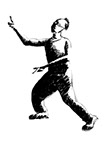
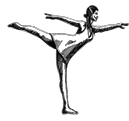
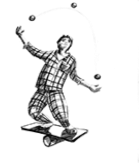
ART & education
1- Jean-Michel Djian, University of Paris 8
2- Dominique Trichet, Fai Ar, education to street performing arts
3- Boris Bruguière, Céméas
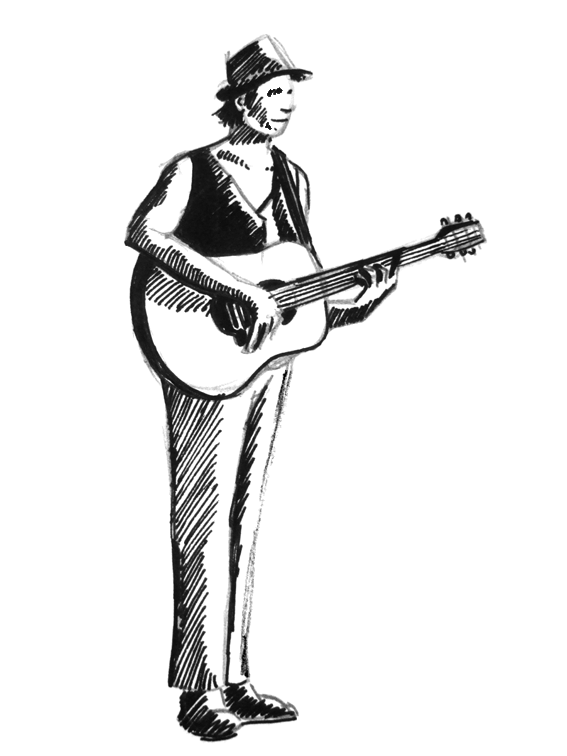
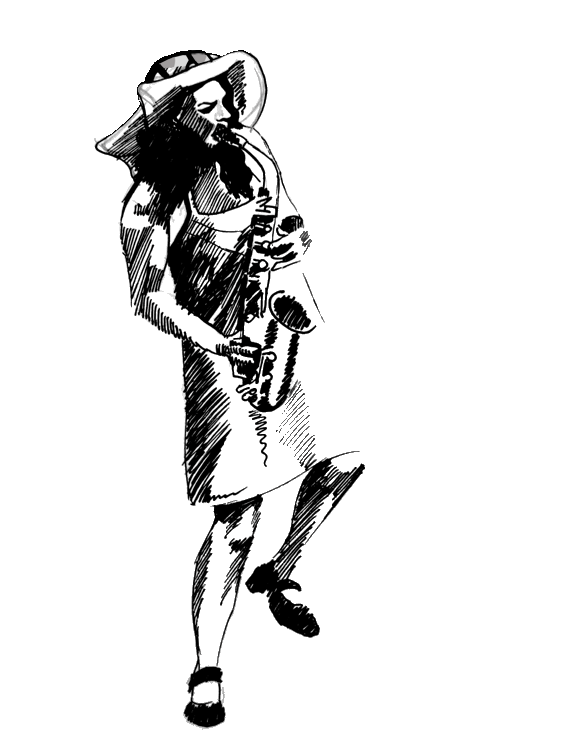
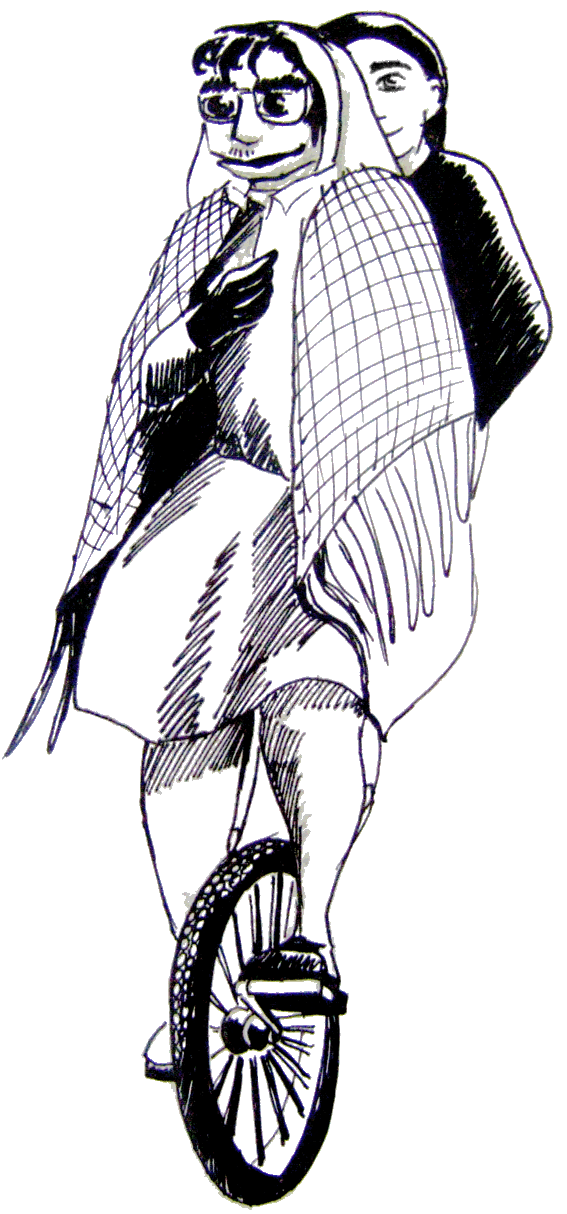
Dominique Trichet
Intervention of Dominique Trichet, FAI AR
Education to Street performing arts
I take the opportunity that Jean Michel Djian is still with us to talk about one of the oldest festivals of Street Arts, in Amiens. The director created it when the municipality of Amiens was liberal (Left party). Then, the municipality came to the right and it was difficult for him to maintain his festival, but he was successful. Recently, the municipality came back to the left and he told me :"To go from the left to the right is even passable, but to go from right to left isn't comfortable, because they get ideas and they exacty know what we have to do, what I have to do." I only say that to take a few distance betweet art and Power.
Municipalities from the right side, in France consider that it is not their problem, that the professional teams have to decide , to chose. They must manage it fair, it is the only thing they ask. While municipalities from the left board have their opinion. The question is : Must we question the elected representatives? Must state be producer or do we have to let the artists work freely?
We talked about the music day, and I was in charge of this celebration in Paris. Street performing arts are not only theatre. I worked in 1986 in a period of political change, and many people thought that the music day was going to disappear. When the practitioners, in line with the population decide to celebrate something, it is imposible to stop them except in dictatorships. So the music day carried on with a culture ministry from the right side.
I come back to the topic I know the best, with which I worked almost 7 years, the FAIAR (advanced and itinerant training course on street performing arts). This course was initiated by Michel Crespin, one of the major leader to federate a profession, the profession of all the artists who decided to work in the public space, whatsoever a fire-eater, a chain breaker, a musician, a poet, fireworks displays, performances...
For us, street arts are all this.
Michel Crespin created the first association called "Public Place". The national centre of creation of street arts was created in 1983. Then, appeared the first book "Goliath" which indexed in France and abroad, all the teams who worked in the public space. We talk a lot of Street Arts. I like this term. In the English speaking countries we talk about specific areas or sites. We only use the term of streets arts in Spain and Italy. In Germany and in Northern European countries we talk about "specific sites". We talk about the street in its large sense. We can play in a train station, an hospital, all that is not built to host shows. The FAIAR, initiated by Michel Crespin in 1999 was in process until 2002 and really started to be efficient in 2005. The training lasts 18 months, is a block release, for people from all over Europe, and even abroad. In the next promotion, we will host a Korean student, a brasilian one and several Spanish people. The age of the participants varies from 22 to 50 years old. The artistic itinerary is very different from a participant to another. Some practice circus, others music, dance, theatre, technics, production. Our criteria is the involvement of the candidates in Street Arts, in the artistic expression of the streets. The training is granted by the State, the Region Alpes Côte d'Azur, the municipality of Marseille, the social fund for artists training.
We have to point out that the students have really made the choice to work in the public space. We receive participants with 2 profiles : on one side, people with around 10 years of experience in the public space who want to pass a horn, because they feel they don't improve, or they want to compare their practices with other artists. on the other side, we meet younger people with an initial training (fine arts, university...) but who decided to act in the public space and already managed projects.
The training is a block release of 18 months with 3 axes :
The first one : the fundamental basis, questions that we can't not ask ourselves. We don't get permanent teachers but we work with artistic teams, on periods of 3 weeks, or with a creator. For example, we question the topic of the sound in the city, the verticality... we can work with, as a departure, architecture (of a monument, a site...), work with non professional populations, invent a story that reveals the life of a country...
The second one : roaming, as a principle. The last promotion went to Centre of France, to Morocco (Salé, Marrakech), to Slovenia (Liubliana, work on architecture : what actions can we invent with 3 bridges on the river), to Lyon (celebration day of lights).
The third one : the participants have to cultivate their "Garden", to improve their initial practice, to create an action in the public space. They also have to invent "their imaginary travel" (go and meet other cultures, outer Occident and analyse how artists act in the public space). "The personal project of creation" is a project each participant has to create with a tutor (professional actor) who helps hip to act.
At the end of the training, we organise a panorama of the approaches of each participant who propose his project to professionals. We gather broadcasters, responsible from festivals from France and abroad, and people from other sectors. Each participant presents his project with the form he wants. Almost 10 projects on 15 have been realised, even for those who didn't get any experience. The 5 remaining projects may be realised later, abandoned or transformed.
The issued : is it possible to learn art? isn't it completely stupid to follow a training? Some people thought (even in the profession) that Street Art can only be learned in the street and that a training would institutionalize the profession, that it was an error. But is there a future without sharing ideas, experiences, actions? it is important, according to me, that research, outer look, studies, publications, exchanges, transmissions happen. I made Street theatre with several companies, with people older than me, and this is how I learned. But denying schools and transmission seems to me as "we created everything alone, there are no reason to help others". For 10 years, the idea has been transmitted and became an evidence. We became "their school".
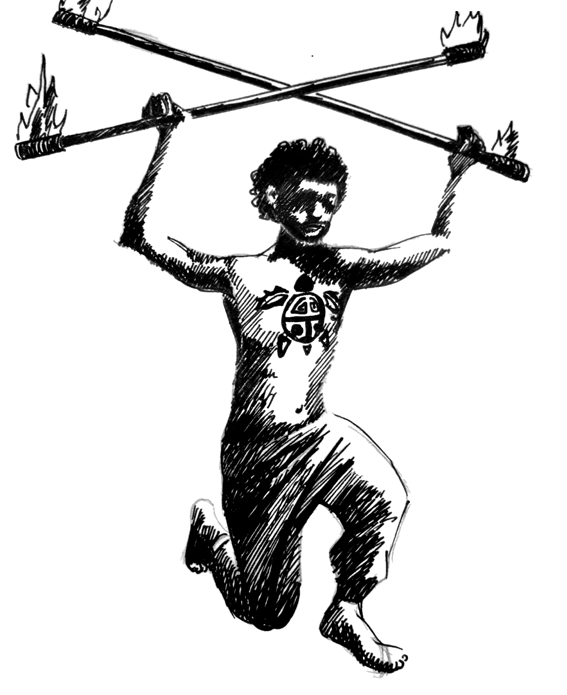
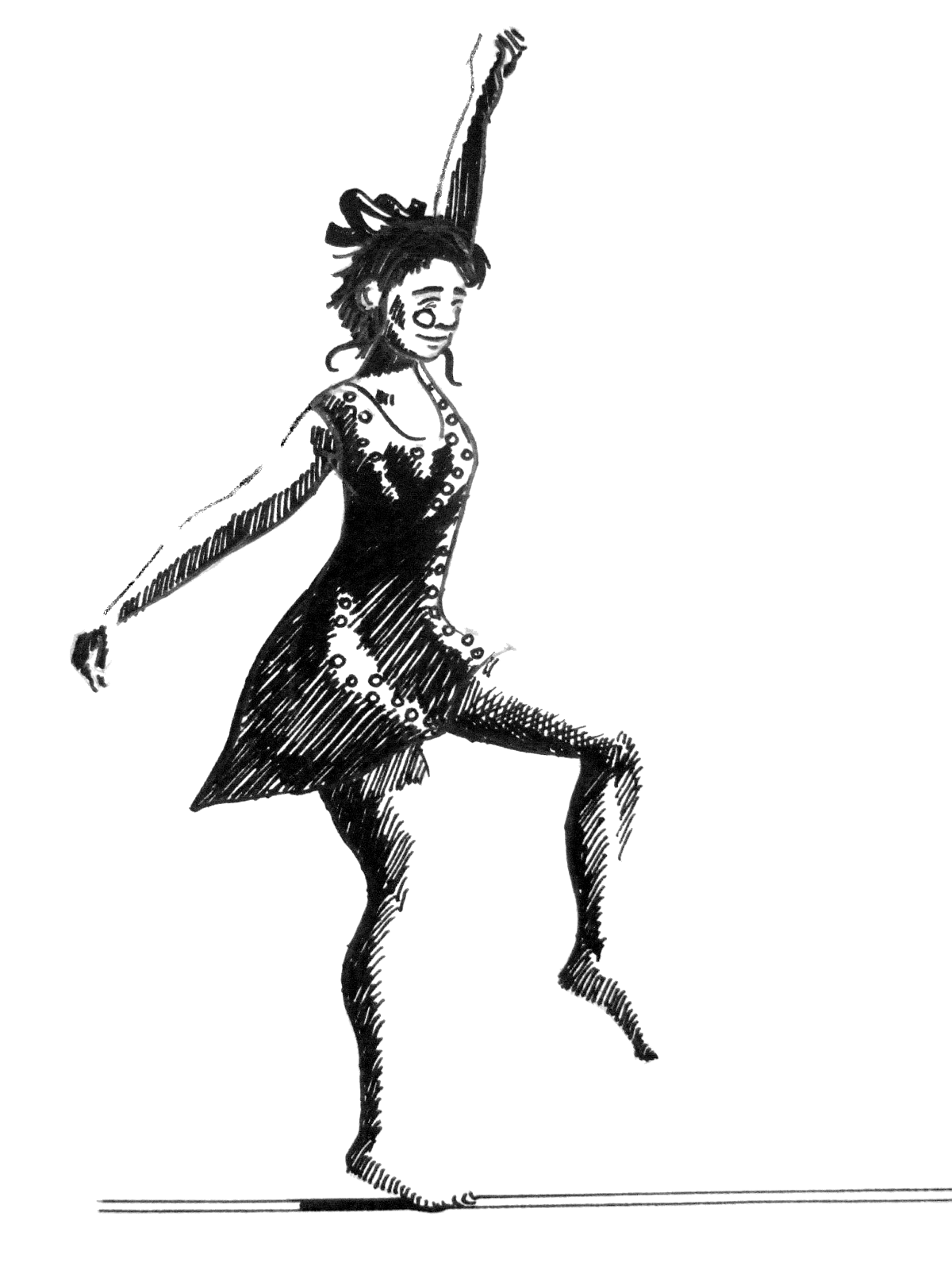

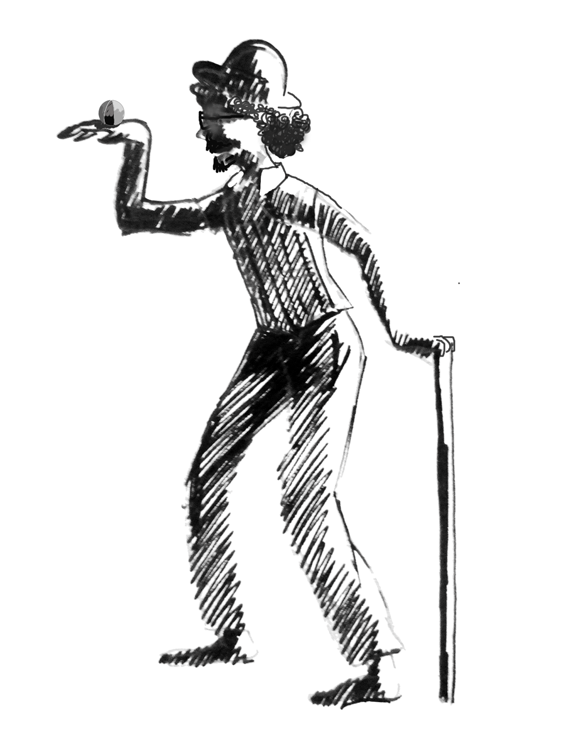
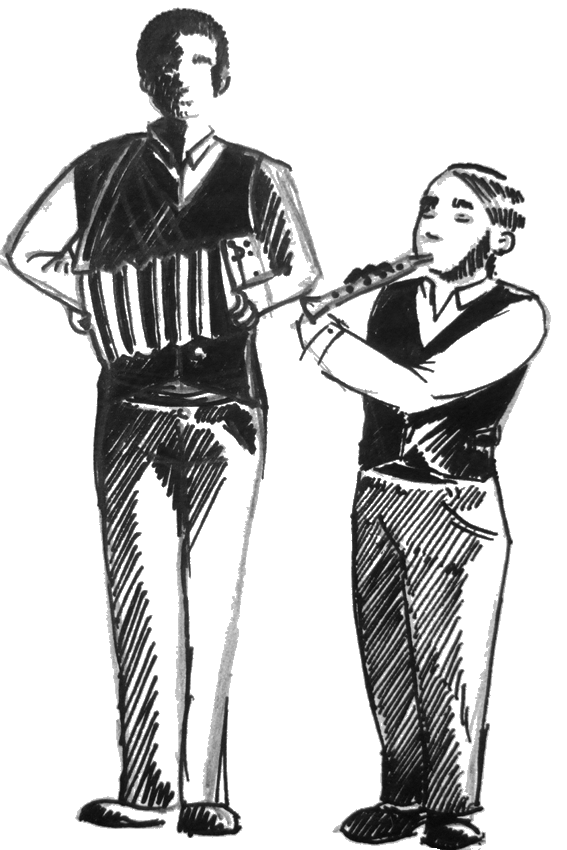
Boris Bruguière,
Céméas
Intervention on Popular Education, street arts and living together
I am going to talk about the action of my organisation, the Cemeas, Centre of Training to educative active methods, and about their actions in the field of culture and artistic education.
This is an association of popular education. This kind of organisation was born in the 1930s in France. Quickly, the Cemeas were associated to the Avignon theatre Festival, as Jean Vilar Asked for it. We created places of hosting, housing, for the public who is not used to go to festivals, to practice theatre, to meet shows and artists. We also take part in the festival of Aurillac, of the Francopholies.... we organise several kinds of actions.
We will also talk about the caring of unemployed artists, or how to professionalise oneself and overtake the administrative difficulties.
I am in charge of an action around Singing, in the nowadays practices. We get reflections on how acting on the practice of singing.
The Cemeas work also a lot on "how people can appropriate themselves city, become actors of events that happen in front of them, how to make them participate.".
About our actions of mediation in the festivals, we create structures in schools, high schools (during holiday times), in which we use the dormitories, or we create it, putting beds and kitchens in some rooms to be able to spend there 15 days, 3 weeks... then we host children or adults. This place of living become a space of meeting, where we share meals, moments of daily life, collective moments, moments during which each one go and see shows....
We work with all those people also on the creation of shows. We organise moments of artistic practice. We are not only the audience, in front of a passing train. We also practice. If I don't live it, I will stay a spectator. See the artists, from far, make art unattainable and make us build false representations. Thanks to the practice, we can change our point of view, on art and artists, and on how we become an artist. So we organise a few hours of practice on the mornings. We also share our points of view on the shows we saw, on the daily life, on the group. The idea is to go further than "it is good, it is bad", but to think about why I like it, why it makes me angry... we develop our critical sense, as a citizen, a spect-actor, on art.
There are also moments of meeting with artists, organised by our association, or by the festival. During those cultural caring, we get a specific approach of cultural mediation (well developed in France, in museums....) in a different way : we consistently alternate moments of practice, with moments of meeting with artists, and of discussions on what we see, what we live or lived together. The priority is not what we see, but what we live together. The artistic form is a tool (cinema, music....) but the question is above all : what are we going to live together. We work on it, with children groups from school or youth centres.
On the festival of Aurillac, of street arts, the spaces of debates and forum are made in the street. We take a piece of street to create a debate with audience, artists, organisators of the festival. This is also a way to go into places that we are not used to. We are creating one of those house in the festival "Suds" in Arles, after the festival asked us to do it. We are going to create a housing, as a laboratory, a crossroad between audiences who are not used to meet (as youth with difficulties, people far from the cultural offer, ...).
For the caring of unemployed artists, we receive grants from the government. We answer calls for proposal, and we have to give assessments, but we can by this way broadcast our values, as cooperation, solidarity, participation... We also try to answer to a need of interfaces between artists, event... we try to keep our independence, to refuse things that don't fit with our approach.
The caring of artists suits with this kind of actions. On the region Languedoc Roussillon (south of France), we administrate between 80 and 100 persons, who have the statute of artist, receive the unemployment benefit and involve themselves in a professional orientation course.
A caring is always individual, concrete, logistic (renting, housing, legal actions...). The main problem for the artists nowadays is to run the administrative tasks, and to federate for this. Cooperatives of artists, of associations, of entrepreneurs are an answer to this administrative caring and sometimes, we orientate artists toward this kind of organisations. At the collective level, we work on concrete actions, artistic practice (theatre, music, fine arts, writing, image). We share among ourselves, in groups, experiences and laboratories. We produce, we show, we look a place of broadcasting. We also go and discover, meet, together, organisations, experiences...
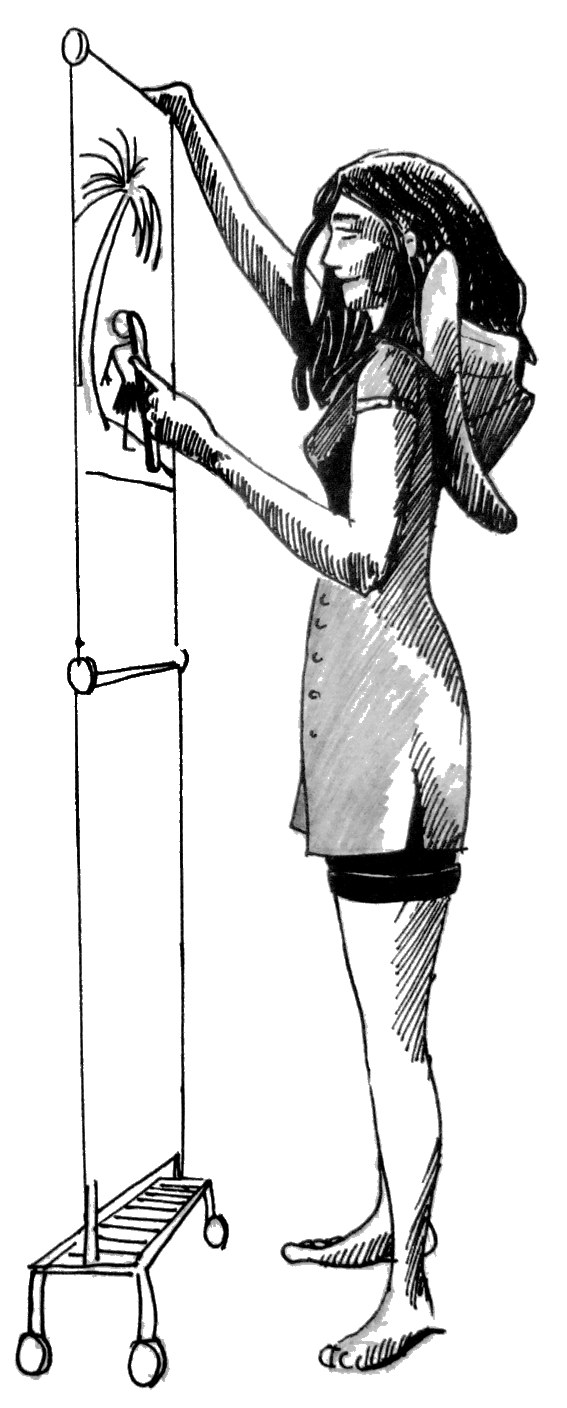

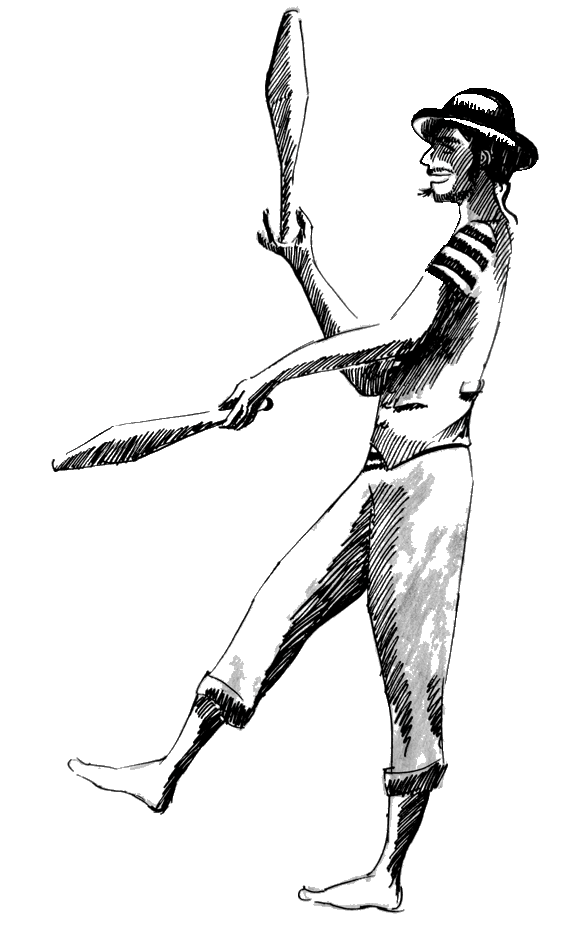
ERRANCE EN AÉA